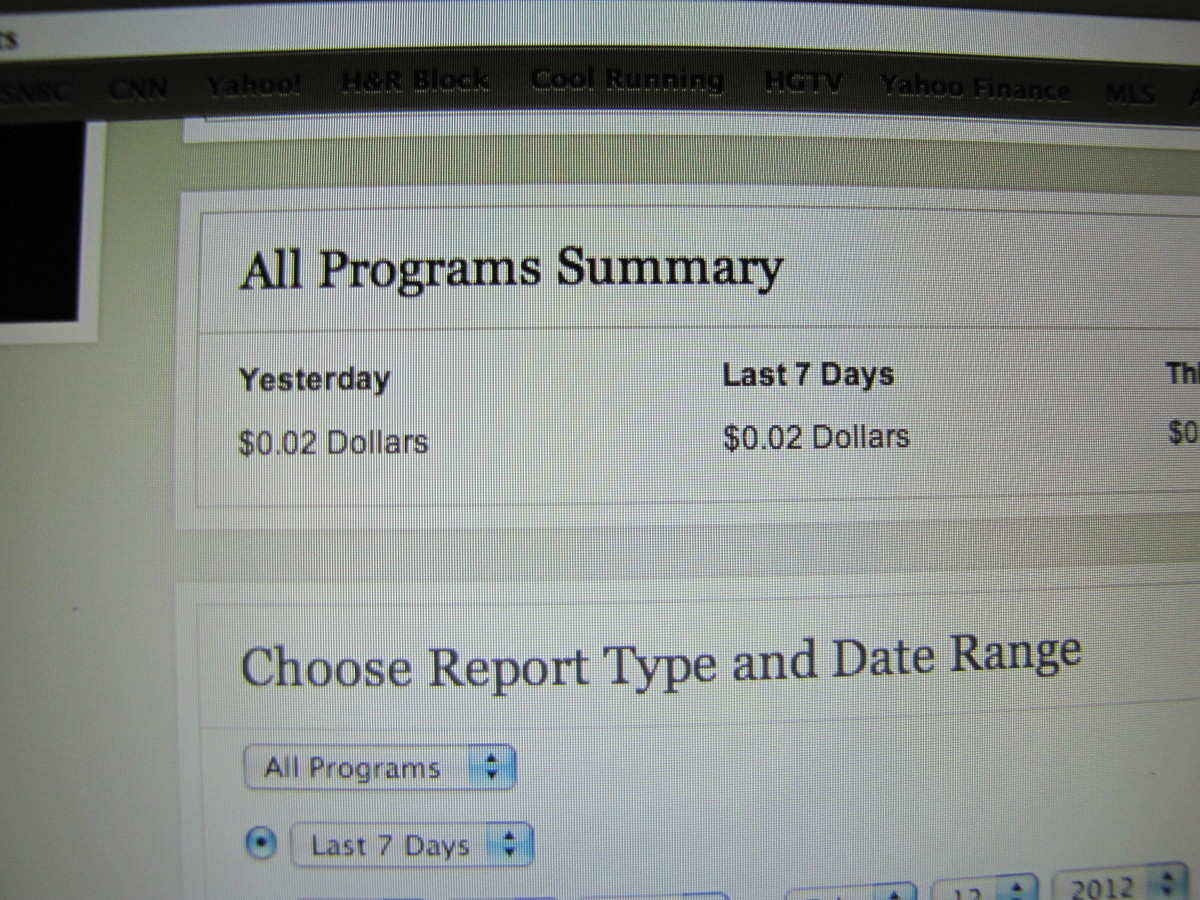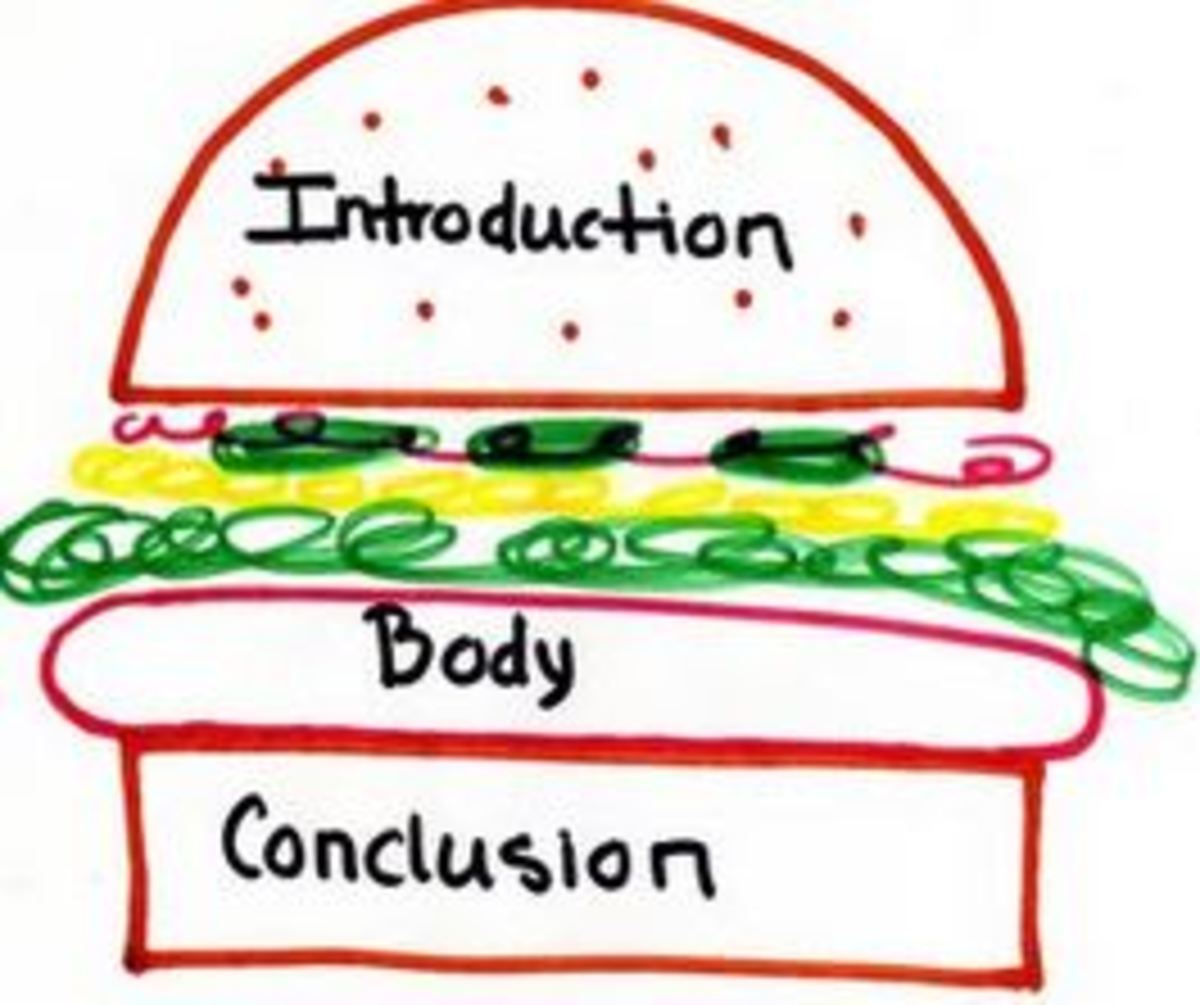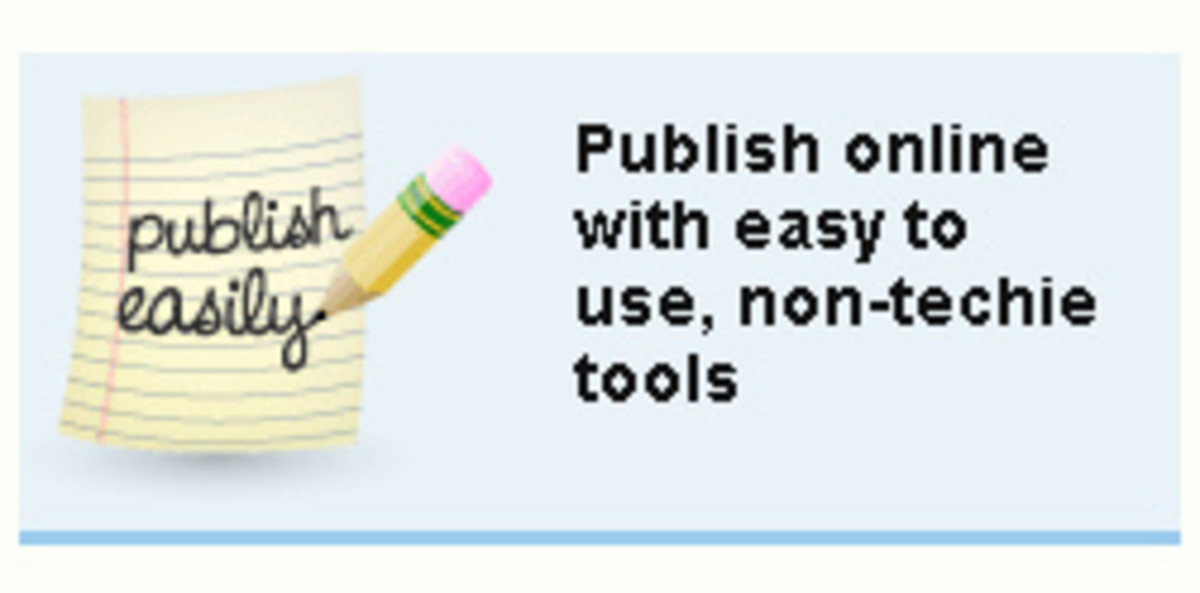Advice for New HubPages Members
Effective Writing Is No Accident
Many beginning HubPages writers may be daunted by the whole process of writing and submitting thorough, visually appealing Hubs. Low Hub scores and slow traffic are discouraging, as is the dreaded notice that your Hub failed the Quality Assessment Process.
But as the late William Zinsser, an Ivy League writing instructor who also wrote books and articles, observed, “Writing is hard work. A clear sentence is no accident. Very few sentences come out right the first time, or even the third time. Remember this in moments of despair. If you find that writing is hard, it’s because it is hard.”

Before You Start
The first step in the writing process is planning. Try some of these suggestions to plan your writing:
- "Work from abundance." It's much easier to take out something unnecessary than to add something necessary. When you have plenty of ideas to work with, it's easier to find a few to focus on in your writing. Look for inspiration wherever you can.
- Write about things that interest you. If you enjoy your topic, it'll show in your writing. The converse is also true: if you don't enjoy your topic, it'll show in your writing. Zinsser advises, "“Be true to yourself and to the culture you were born into. Tell your story as only you can. . . .Sell yourself, and your subject will exert its own appeal.”
- Do your homework. See what else has been written on your topic, both here and elsewhere. What do you bring to the table that these other writers didn't? Do you bring personal experience? Do you bring years of study? Find ways to incorporate that into your Hub. You may need to refresh your knowledge of a topic by consulting outside sources. Those outside sources add credibility to your Hub.
- Be realistic in your expectations. It's realistic to try to write one excellent Hub every week. It's unrealistic to try to write one excellent Hub every hour. It's realistic to set a goal to improve your traffic a little every month. It's unrealistic to set a goal of making $100 in your first month.
- Be prepared to write and rewrite your Hub. Even the most experienced writers find typographical errors to correct, sentences to reword, or additional images to insert. As Zinsser reminded his readers, “Learn to enjoy the tidying process. . . .With every small refinement I feel that I'm coming nearer to where I would like to arrive, and when I finally get there, I know it was the rewriting, not the writing, that won the game.”

Checklist
No one wants to get the notice that a Hub failed the Quality Assessment Process. It's not always clear what aspects of the Hub are the problem, and it can be a lot of work to find and correct those mistakes. Learn how to avoid warnings and notices.
- An effective Hub should be free of errors in English grammar and usage. Because your audience reads in English, and Google searches in English, you should double check to be sure your use of language is helping and not hindering you. If your first language is not English, take time to visit ESL forums and read the usage materials. (A helpful resource is Using English, which offers quizzes, verb lists, and forums.) It may help to ask a native speaker to read your Hub before you publish it.
- An effective Hub should be succinct. As Zinsser admonished his students, "“Reexamine each sentence you put on paper. Is every word doing new work? Can any thought be expressed with more economy?” Rid your Hub of any "word clutter," and use vivid, specific words to convey your message. Writing succinctly shows that you respect your readers' time.
- An effective Hub should be clear and easy to read. Zinsser advised his readers, "If the reader is lost, it's usually because the writer hasn't been careful enough." Remember that you are writing for your readers, not for yourself. Clearly explain any jargon or acronyms. For a recipe or other "how-to," explain each step thoroughly. Avoid using long, unwieldy sentences.
- An effective Hub should be thorough. Your Hub should answer the "4 W's and an H": who, what, when, where, and how. If you write a general statement, expand on it by offering specific details or examples. Once again, you are writing for your reader, not for yourself. Is the average reader likely to have a better understanding of your topic after reading your Hub? Don't just say, "Eating nuts is good for you." Explain why eating nuts is good for you.
- An effective Hub should reference sources consulted. Unless you have an expert knowledge of your topic, you should cite and link to reliable sources. This lends credibility to your statements.
- An effective Hub should use subtitles judiciously. Think of subtitles as major points in an outline. They break up huge chunks of text and tell readers what they're going to be reading about.
- An effective Hub should use images and videos judiciously. Images, like subtitles, can help transition the reader from one idea to the next. They should enhance your content, not be your content. Images and videos should be of high quality. Be sure that you have permission to use all images and videos you include in your Hub. Such sites as Pexels, Unsplash, Pixabay, and StockSnap offer free images under a Creative Commons 0 (no attribution necessary) license.
- An effective Hub should use links sparingly, and only to offer the reader a chance to find more information. The reader should not have to go all over the Internet to find information that should be in your Hub. Your text should be more than a "teaser" for material elsewhere. You may wish to use your links section to allow your reader to visit the sources you consulted for your Hub.
Advice from William Zinsser
I Failed QAP. Now What?
It can be disheartening for a Hub you've spent time on to fail the Quality Assessment Process. Keep the following in mind when you visit the "Improving Your Hub" forum:
- If your first language is not English, and you failed QAP, your command of English is probably the reason. Before you try to make any other changes, improve your English. Help is available both here on HubPages and on several ESL forums if you take time to look. Broken English makes your Hub confusing and difficult to read. Read similar Hubs that passed QAP, and honestly assess why their Hubs passed and yours didn't. Don't try to write other Hubs until you correct the problems with the Hubs you have. Otherwise, you are likely to fail QAP again.
- Accept constructive criticism graciously. Becoming angry or defensive, or asking for easier suggestions for improvement, shows a lack of appreciation for those who are trying to help you. It also shows that you are not willing to put the necessary time and effort into your Hubs. Most times, the "quick fixes" aren't going to address the true problem.
- Respect others' time and willingness to help. Many veteran Hubbers are glad to point out a few areas that need improvement, but it is presumptuous and unreasonable to expect them to meticulously go through your entire Hub to tell you exactly how to correct every error. Appreciate the help you are given, and do your part to address the problems that others point out.
- Learn from advice that others have given and received. Often, you may find advice you hadn't thought of. The same advice that another Hubber got may be just the advice you need.
- "I'm new" is not a reason to put a Hub in the wrong category or not proofread your Hub before submitting it. If you don't care enough to proofread your Hub and be sure it's in the right category, why should anyone else care about reading it?
- Remember that writing is an art that takes time to develop. Writing one excellent Hub is better than writing ten mediocre ones. Don't let this discourage you; let it encourage you to do better.
Which step of writing a Hub is most challenging for you?

A Final Word
Understand that many HubPages writers earn little or no money from submitting articles. If you write because you think you can make quick money, you are likely to be disappointed. If, however, you learn to appreciate the "less glamorous gains made along the way--learning, wisdom, growth, and confidence, dealing with failure," you may find that you enjoy being a part of HubPages.
Remember to not become discouraged if things start slowly. Building an audience takes time. Consider the line from Field of Dreams: "If you build it, they will come." If you submit an excellent Hub, the visits will come.
Recommended Guide for Writers
Helpful Resources for Writers
- Effective Writing on HubPages for Successful Reader ...
Here are several tips I found to be very important for successful writing on HubPages. - Effective Writing: Communicating with Your Reader
Freedigitalphotos.net English composition may be a chore to learn, but grammar and punctuation have rules for some important reasons. The author wants to express his or her ideas in a clear and concise manner. Incorrectly structured grammar or the... - English Language (ESL) Learning Online - UsingEnglish.com
Resources to learn the English language for ESL, EFL, ESOL, and EAP students and teachers. Browse our Glossary of Terms, join our busy forums, download our free language software, read our articles and teacher handouts, and find useful links and info - William Zinsser - Writer
Biography and advice from Ivy League writing instructor William Zinsser, who was also a prolific book and magazine author.









